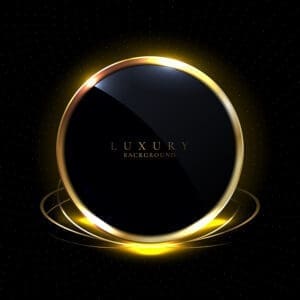 By David Topolowski , CEO of Qooco
By David Topolowski , CEO of Qooco
How important are sales skills for hotel employees?
When you are in a customer-facing industry like the hotel industry, the ability to sell is extremely important, andÊI think most general managers would agree with me! A hotel is a busy and complex environment, and there are numerous opportunities for additional sales throughout a guest’s stay, a well-trained team will be able to take advantage of this and be able to upsell when and where appropriate. Small upgrades and sales can really add up, and make a difference to a hotel’s bottom line.
However, it is very important to note that sales and customer service are not mutually exclusive. On the contrary, upselling is able to add value to a guest, making his/her stay easier and more pleasant, generating more loyalty Ð It is not about squeezing the guest out of his/her last dime. For example, a waiter’s suggestion that the diner should accompany her meal with a particular type of wine will certainly generate more cash for the restaurant, it will also result in a better dining experience for the diner. A front office clerk’s tip that the guest and his family should upgrade to a larger room will generate a few hundred extra bucks for the hotel, but the stay of the family will be much more pleasant.
If guests feel a hotel is out to fleece them at every turn with hidden costs and pushy sales tactics, they will not return. But if guests feel that the staff are actively seeking to make their stay more pleasurable, they will return. This is a fine line to take for the hotel employees, and it is these skills that need to be honed.
Should sales skills be given a higher priority by HR leaders in the employee selection process?
Hotels, particularly luxury hotels, do a great job instilling the fundamentals of customer service into their employees. As the industry becomes more competitive, especially here in Asia, properties will differentiate themselves more and more on the level of service they can provide their guests. This includes everything from the way they greet their guests to what language they speak.
I do believe more can be done to inculcate a Ôsales attitude’ within their staff. This does not mean teach them to be pushy, or give the front office staff sales targets, but it means training them to identify areas in which improving a guest’s experience, and revenue generating opportunities overlap, and being able to take advantage of these situations. I also think that they should have a basic understanding of the underlying science and psychology behind the art of sales, as this will give them a better nose for what is appropriate, and what is not.
Are there any particular departments within a hotel where the ability to sell is more important?
As every hotel professional will say, hotel staff are always Ôon stage’, representing the brand and acting as salespersons, whether they are in the Front Office, Housekeeping, Engineering or F&B. However, there are certain departments within the hotel that offer more opportunities to improve a guest’s stay, and therefore generate additional revenue. These would include Front Office, where newly arrived in guests check in and would be open to upgrades, spa treatment after a long flight or a burger sent to their room. The restaurant is another obvious place, and concierge’s role as a trusted advisor to guests positions him well to leverage revenue generating moments.
Can sales skills be taught? Or are people either born with or without the ability to Ôsell’?
I believe sales skills can be taught and honed to some extent, but the employee should possess at least some of the basic innate talents needed to sell. This is important, because these skills will stay with the employee long after his or her hospitality career, and so acquiring them can have outsize effects on a person’s career. Unlike some skills in hospitality, such as serving a table or making a bed, the ability to sell or upsell is useful no matter what industry you work in, which makes employees extremely valuable and skilled.
On the one hand, yes, some people are naturally better at selling than others. There are certain traits that help, such as confidence, and the ability to think quickly, enthusiasm, as well as self-awareness, emotional awareness and curiosity. Yet many of these traits should also be present in good hotel employees, and as I said earlier, sales and customer service are strongly aligned, and an employee who truly understands the needs of the guest will be in a good position to learn additional sales skills.
The key is to incorporate sales training into existing training programmes, and actively practice and learn situations where upselling would be relevant. It is also a good idea to incentivise employees to upsell, through initiatives such as targets, prizes and recognition Ð though it is important to think carefully about how you establish these incentives, so as not to distract employees from their core function of guest service.
How can technology help equip employees with necessary sales skills?
Learning technology has become significantly more sophisticated over the past few years, and developments in mobile learning, Augmented Reality (AR) and Virtual Reality (VR) promise to revolutionise the way we learn. The key to learning Ð anything from how to serve a customer to a new language Ð is repetition, and this is where mobile learning comes into its own. Unlike classroom-based learning, which requires space, time, is disruptive and only occurs a few times a week (at most) in a busy hotel, mobile learning can happen anytime, anywhere. Furthermore, we can develop mobile solutions (such as Qooco Upsell) that accurately mimic a hotel environment, providing relevant training that can be applied to real-life, yet at a fraction of the cost of traditional learning techniques.
There are exciting developments in the field of AR and VR. VR essentially recreates sensory experiences, such as sight, sound and even smell and taste Ð virtually. It is finally becoming more advanced, and thanks to mobile technology is becoming accessible on a mass scale. Today, users are able to experience VR using nothing but a Google cardboard viewer and a Samsung smartphone, and soon I believe we will be able to view live sports events from the comfort of our living room, as if we were actually there. AR, while similar to VR, superimposes a computer-generated image on a user’s view of the real world, and there are ways in which we can use this to generate scenarios that train the user on upselling and other sales techniques.



















